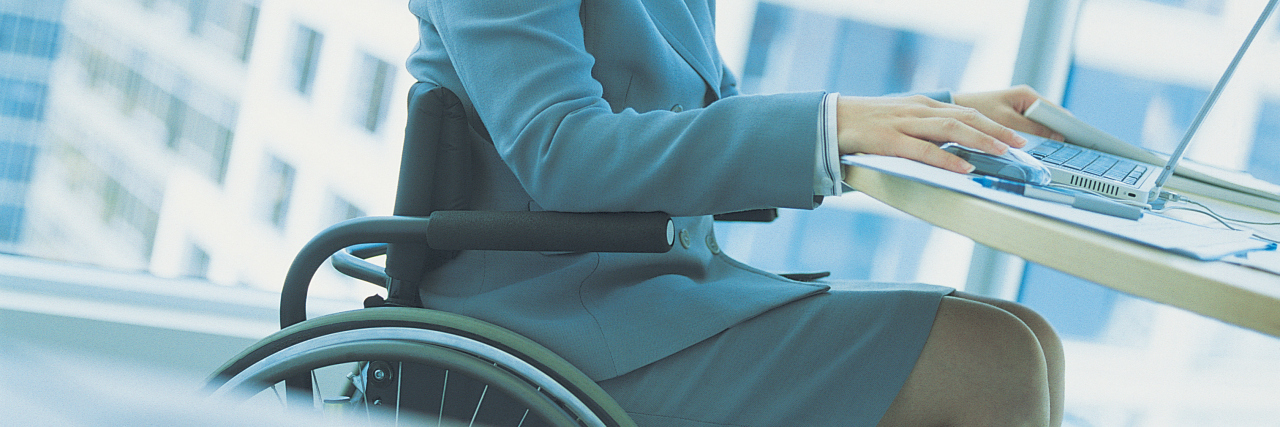I am white. I am white as the snow on the ground. While white, I face ableism and sexism a lot, and it sucks. But I am white. I want to bring this up to discuss how I benefit from being white in my own marginalized community.
When I watch TV shows and movies about disabled people, it’s almost 100 percent white people. Mostly males, but definitely white females too. I see myself represented. I am more normalized to others; more people accept who I am. Tell me, can you picture a person of color with Down syndrome? How about an indigenous person in a wheelchair? Why is that so rare to see?
People see me as a little white female, so when I stand up and speak out about injustices I face, I am seen by more people as strong and powerful, instead of something like the ridiculous “Angry Black Girl” stereotype. More people are willing to hear me out and accommodate me.
I am not forgotten within my own community. In fact, someone like me is a poster child for disabled people. White, middle class, good special education program. I grew up with so much privilege, I’m oozing it. I can easily forget about my white identity and focus on my disabled identity because I am not constantly oppressed due to my race. These examples are just some of the benefits of having so much privilege within your own marginalized community.
As much as I benefit from this system, it’s not fair. It just isn’t. So let’s use some privilege and start talking about the folks of my community regularly forgotten, because my community will only be as free as our most marginalized. Now I refuse to say I can touch on the experience of these communities, nor will I ever completely understand because of my place of privilege, but hopefully I can open the floor for these people to actually speak on their experiences. I will bring to light some issues below:
When you are a member of the LGBTQ+ community and are disabled, a doctor’s visit can be very stressful. If a doctor is not sensitive towards your needs, like being in a wheelchair going through transition, you may not get the adequate care you need.
When you try to immigrate to countries like the USA and are disabled, there are roadblocks. You are legally allowed to be denied entrance if you even may become a public charge (relying primarily on the government for subsistence). As many disabled people know, not everyone in our community can work. Denying entry because of that is inherently ableist and only values traditional concepts of productivity in a person, rather than many other important traits like empathy.
Studies have shown a large disparity in the median age of death for people with Down syndrome based on race. If that doesn’t prove privilege, I don’t know what does. Down syndrome occurs across all races and economic classes also, meaning the less money your family/you have, the less likely you are to survive, and the disparity here is huge.
If you are a hijabi-wearing Muslim woman who is disabled, say from something like PTSD, you’re less likely to be taken seriously compared to someone like me. It’s like the color of my skin gives me more credibility. As someone who experiences severe depression, that bothers me. Sometimes my mental illness isn’t taken seriously at all, despite how much it can interfere with my life. The fact that women in general are taken less seriously, and especially women who are from further marginalized communities, really messes with me.
If you are person of color with disabilities, anytime you are stopped by police could be the last time you take a breath. Of course not all police are bad, but militarized police and police who aren’t trained to handle emotional outbursts, seizures, and sensory processing overloads, among other things, are a huge issue. Statistics show up to 50 percent of people killed by police are disabled, despite disabilities only making up 20-25 percent of the population. Most people killed are those with mental illness or intellectual/developmental disabilities, and disproportionately belong to more marginalized communities.
This barely scratches the surface of what it means to be privileged within a marginalized community. Every community needs to start recognizing their disabled members, and the disability community needs to recognize that many are privileged within it. Privilege is not a dirty word; it is a tool we can use to help further the most marginalized in our communities and our society as a whole.
We want to hear your story. Become a Mighty contributor here.
Thinkstock photo by Digital Vision.

